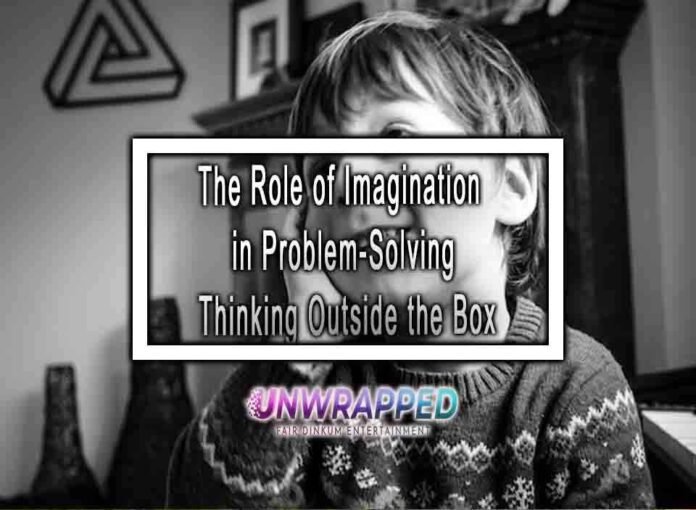Imagination plays a crucial role in problem-solving by enabling individuals to think outside the box, explore creative solutions, and approach challenges with fresh perspectives. Here’s an exploration of the role of imagination in problem-solving:
Creative Problem Identification:
- Imagination allows individuals to identify problems or challenges that others may overlook. It enables them to see situations from different angles and recognize unique issues that need to be addressed.

- Imagination allows individuals to identify problems or challenges that others may overlook. It enables them to see situations from different angles and recognize unique issues that need to be addressed.
Generating Innovative Ideas:
- Imagination is the wellspring of innovative ideas. It helps individuals break free from conventional thinking and generate new, unconventional solutions to problems.
Visualization:
- Imagination allows people to visualize potential outcomes and solutions. By mentally simulating various scenarios, individuals can better understand the consequences of their decisions and choose the most effective path.
Empathy and Perspective-Taking:
- Imagination fosters empathy by enabling individuals to put themselves in others’ shoes. This can lead to more compassionate and understanding problem-solving, particularly in interpersonal and social situations.
Cross-Disciplinary Thinking:
- Imagination encourages cross-disciplinary thinking, where ideas and concepts from one field are applied to another. This interdisciplinary approach can lead to breakthrough solutions by merging knowledge and practices from diverse areas.
Overcoming Mental Blocks:
- Imagination helps individuals overcome mental blocks and barriers to problem-solving. When confronted with challenges, thinking imaginatively can break through self-imposed limitations.
Encouraging Risk-Taking:
- Imagination can inspire individuals to take calculated risks when problem-solving. It enables them to envision positive outcomes and motivates them to step outside their comfort zones.
Innovation and Creativity:
- Imagination is the driving force behind innovation and creativity. It fuels the development of new products, services, and approaches that can solve existing problems or meet unmet needs.
Divergent Thinking:
- Imagination encourages divergent thinking, a process that involves generating a wide range of ideas and solutions. This approach can lead to more options and opportunities for problem resolution.
Critical Thinking:
- Imagination complements critical thinking by offering different perspectives and alternative viewpoints. It allows individuals to critically evaluate various ideas and select the most promising ones.
Continuous Learning and Adaptation:
- Imagination fosters a mindset of continuous learning and adaptation. It encourages individuals to explore new solutions and adapt to changing circumstances, leading to effective problem-solving in dynamic environments.
Personal Growth and Resilience:
- Problem-solving with imagination can lead to personal growth and resilience. It empowers individuals to view challenges as opportunities for development and builds their capacity to tackle future problems.
Imagination is a valuable tool in problem-solving, empowering individuals to address complex issues in innovative and effective ways. By nurturing and harnessing their imaginative abilities, people can enhance their problem-solving skills and find solutions that were previously hidden by conventional thinking.












